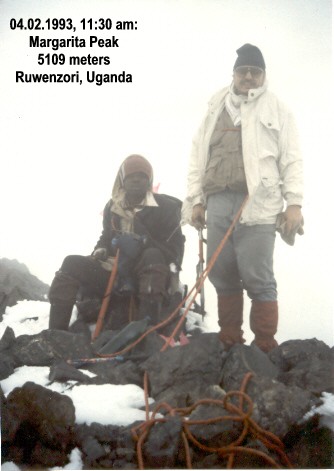USD 10 bn for Africa: The love-hate relationship between Africa and China
BBC feature:
African view: China's new long march
Ghanaian writer and former government minister Elizabeth Ohene considers China's impact on Africa.
"In Ghana as in other countries on the continent, the Chinese are here, very visible and very busy. The relationship between Africa and China is a love-hate one - the love is more on the side of the governments and the hate on the side of business, civil society and the unions.
(...)
I have seen them operate at first hand over the past eight years, when I was in government in Ghana.
Many are willing to work seven days a week; if they can get away with paying $2, they will not pay $3; and if you are late with the payment of one interim invoice, they will stop work.
If it suits them, they claim they cannot speak or understand English to get themselves out of sticky situations."
>> more
This artice gave birth to a nmuber of online-comments of which a few are reproduced here. For a more balanced view go to the original article.
"From the African point of view, the West raped us and now we are prostituting ourselves to the Chinese. At least whether we're getting a fair deal or not there's still something concrete on the ground to see with the Chinese unlike the West, World Bank and IMF who only enriched and corrupted our so called leaders (and of course themselves) and made us guinea pigs for their hypothetical economic theories and ideologies. Leave the Chinese alone they might not be that fair or generous but at least we're getting something out of it!!!!!"
Ethiopiawi, Addis Ababa
"I relate so much with this article, it is not funny. Here in Lesotho, the ruling party is financed by the Chinese government, and with that we've been sold out completely!! In the villages, our grandmothers's small shops have gone dry because they cannot compete with 5 cents less of the same product in the Chinese store next door!! I have always wondered where they get such cheap products, come on, we all know economics? People have called on the government to keep check of these products, expiration dates and the likes, but nothing. Unfortunately, we still go and buy there because a 5 cent saving goes a long way for a poor person. Turning to the big clothing factories, now the highest employer in Lesotho, the state of affairs is appalling, it is not surprising why they have the highest HIV infection rates there!! China is the new Colonial Master, and again our corrupt leaders are selling us!!"
Palesa, Maseru, Lesotho
"I read this article from a unique perspective - an African that spent 3 years studying in China now living in Tokyo. The author hits the mark, as do some of the responses with thoughtful comments and pertinent questions. Ultimately, I strongly believe that regardless of the motivations of this superpower or that, Africans need to take charge of their own considerable resources and hold their (mostly corrupt) leaders to account. Until Africans realize and follow through on this, we will always be at the mercy of the reigning superpower(s)."
Aitai, Tokyo
"The moral of the story: be careful what you ask for when dealing with the Chinese because that is precisely what you will get. You may not get what you expect, but you WILL get what you asked for. Businesses who send manufacturing to China do so in order to get cheaper goods. And the Chinese deliver. Their slant on worker conditions, questionable materials in the goods, and resultant pollution from their processes? "That was not part of the deal. Therefore, none of your concern." Oh, and Tanya of Germany, you mention that countries who are overcome by the Chinese will need to rely upon "Western donor nations". The "Western donor nations" are selling themselves to the Chinese, as well, and will be no more."
Dan, Charlotte, NC, USA
"I travelled back to Kenya after a while away, and was surprised at the number of Chinese not just in large-scale government projects, but also "low-level" occupations. Some seem to have adapted quite well: west of Nairobi, at a road project that resulted in a huge traffic snarl-up, a Chinese worker was busy directing traffic around road constructions. Not too far away, a small shop manned by two Chinese was stocked with all manner of goods for sale. Herein, perhaps, lies potential for not-so-good relations: backed (allegedly) by large soft loans from their governments back home, Chinese traders will quickly take over many of the small- to medium-scale businesses that provide locals in Africa with their incomes. It surely will not be long before the first Chinese farmers pop in Africa to compete with locals for land and other resources. When they begin qualifying for citizenship and expand their ownership in African economies (as has happened in Papua New Guinea and Algeria, where they have even demanded a "China town" in Algiers!), the potential for conflict with locals will increase exponentially."
Peter Wanyonyi, Riyadh, Saudi Arabia
"The Chinese influence in Nigeria has been negative as far as I know. They get contracts because they are ready to play 'ball' with the public officials. They do not contribute to the local economy because they hardly buy anything and when they do, they try to underpay local merchants. They take jobs from Nigerians by importing their workforce from China including gardeners and labourers. They do not transfer any skills because they pretend they do not understand English.
Lastly, they are mostly involved in extraction of natural resources and will site 'security reasons' for not establishing factories to process these natural resources in Nigeria. We are better off without trading with them because it is a mostly one-way traffic; underpriced natural resources going from Nigeria to China and finished goods, mostly of inferior quality returns from China to Nigeria."
Olaide , Lagos, Nigeria
Again, there are many more interesting views in the original BBC article, also from Chinese >> here





Keine Kommentare:
Kommentar veröffentlichen